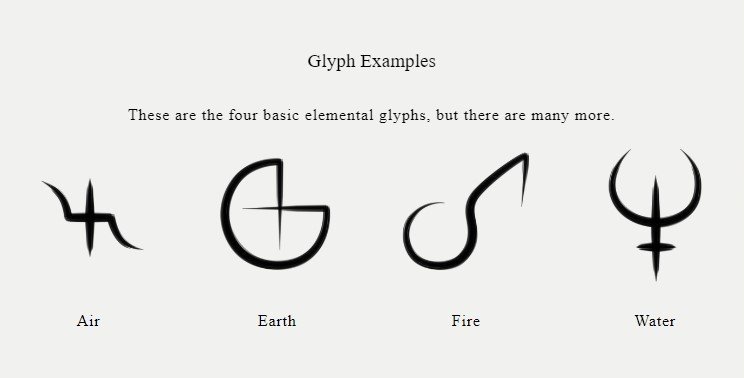What is Magic?
Magic is life.
Life, and a will. The ability to affect and change the world around us. Even those who do not have what we consider to be magic ability are, technically, magical; they just lack the more dramatic application of their will that “magical” people are capable of. The terminology we use is quite imprecise, but this is a digression.
Why then does technology affect magic so? What about tech prevents or impedes that application of will? I imagine that if I knew the answer to that many more things would become clear to me. If the gods know they do not speak of it, but by their very nature they are perhaps incapable of understanding the interaction in the first place. All living things are magical. but they are magic. Magic, and a will. Thus are Hades and Her siblings.
Another digression.
-Excerpt from Ander’s notes, November 21st, 2026 AG.
What is magic?
In the world of Gaia, magic thrives in all living things. For people, there are two main ways it can express itself.
Inherent Magic
Because magic is life, it sometimes manifests itself in interesting ways, causing individuals to have various abilities of a non-mundane nature. Individual abilities are often more common in specific races or along family lines, but sometimes magic hiccups, leading to abilities showing up in places one wouldn't expect. Some abilities are passive, some are active. Having one ability is most common, but a small number of people might have two or three. Only one may be an active type; any others would be passive.
Some types of inherents seen in Lost Blades are:
Masters of Blades, who can pick up fighting styles by fighting them
Bards, who can manipulate their voices to use other types of magics
Embers, who can create fire at will
Empaths, who can feel and, in some cases, manipulate the emotions of others.
Learned Magic
Technically a type of inherent magic that allows a caster to use their own inner core of magic to cast spells, learned magic is named such because it requires the mage to learn the individual glyphs that form the spell arrays in addition to how to bridge and balance them successfully. All magic comes from the mage or caster, since magic is life. Each person has an inner pool of magic to draw from; the size of this pool varies from person to person. Larger or more complicated arrays take more magic to cast. Not everyone has a strong enough inner core to effect actual changes; these people are considered “non-magical” and even if they learn the glyphs, they are unable to manifest an array or power it.
Many mages have specializations, choosing to focus on mastery of a smaller number of glyphs rather than trying to learn many.
The basic building block is a glyph. There are many glyphs, each one representing a possible effect, from elemental (fire, water, etc.) to illusion (hair, eyes, shape, color, etc.) to an idea (transport, shielding, attack, etc.) Any number of glyphs can be built into a spell based on what the caster wants it to do. The caster then builds an array to bridge and balance the glyphs to ensure the spell works properly. These arrays are typically circular, and the array itself is the color of the caster's magic. A poorly balanced spell will not perform well, and can be easily overcome.
Objects
Spells can be “stored” in spell crystals to be used at a later time. Anyone can use a spell crystal. The more powerful the spell, the harder it is to make a spell crystal to store it. Once used up, the spell crystal becomes dull and useless, and can even break. Most are diamond-shaped, but some - like the crystallus canis used by the priests of Hades - are more complicated.
Arrays can be permanently etched onto an object as well. These still require the actual act of casting to activate (for the power source), but can make it easier for the mage to maintain, since they do not have to maintain the array itself.
Interaction with Technology
For some reason, the tech used in the Rose Empire does not fare well when it comes into contact with magic and visa versa. Often one or the other will fail, and sometimes results are far more explosive than most people are comfortable with. Still, there are those — especially in Ni Fon — who are trying to find ways to make the two play nicely together.
Interestingly, the tech used in Romanii works just fine in conjunction with magic.
And that’s all for this week, folks! What are some of your favorite magic systems? Let me know in the comments below!
Cheers!



